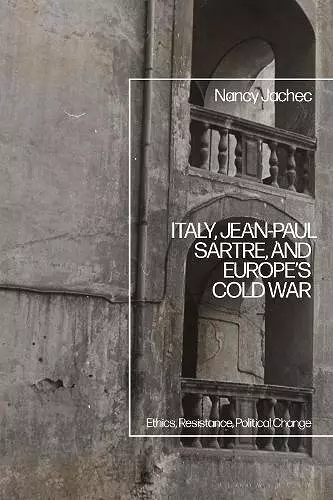Italy, Jean-Paul Sartre, and Europe’s Cold War
Ethics, Resistance, Political Change
Format:Hardback
Publisher:Bloomsbury Publishing PLC
Published:30th Oct '25
£85.00
Supplier delay - available to order, but may take longer than usual.

An examination of Sartre’s relationship with the Italian left and their shared efforts to address the political morality crisis they held responsible for fascism, WWII, and Europe’s Cold War.
Based on extensive, largely unpublished material by and about Sartre from archives across Europe, this book explores Sartre’s lifelong relationship with Italy, its culture, society and, above all, its intellectual left.
Starting with his dawning awareness of politics as foremost a moral responsibility during his first tourist trips to Naples in the 1930s and the poverty he encountered there, Italy, Jean-Paul Sartre, and Europe’s Cold War then examines the relationships Sartre forged with a number of Italian liberal, leftist and communist intellectuals after the war. Not only did they immediately draw him into debates over the ethical crisis that they held responsible for fascism, the war, and now, Europe’s Cold War. Several of them became lifelong friends of his, as well as collaborators in a number of efforts to address that moral crisis in Italy and, by the late 1950s, in Eastern Europe. Reconstructing the networks they established through cultural organizations they founded themselves, Nancy Jachec traces how Sartre and his ideas were brought into the Soviet Union, Poland and Czechoslovakia in pursuit of a democratic socialism.
Using private correspondence, press reports, memoirs, embassy dispatches, government committee minutes, and surveillance and intelligence reports from Eastern and Western sources, this book reconstructs Sartre’s activities and the impact they had in a way that he did not foresee. While his many discussions with his Italian peers on the theme of political morality led him to support the New Left in spite of its organizational problems, in Poland and Czechoslovakia his work was taken in a very different direction, where intellectuals would go on to assume real political responsibility.
Drawing on a trove of archival materials, memoirs, and interviews in a half-dozen languages, this strikingly original study demonstrates how Jean-Paul Sartre’s relations with Italian intellectuals, and, through them, his engagement with reform communists and dissidents in Eastern Europe helped contribute to the demise of Soviet rule and the end of the Cold War * Matthew Evangelista, President White Professor of History and Political Science Emiritus, Cornell University, USA *
ISBN: 9781350433816
Dimensions: 236mm x 154mm x 24mm
Weight: 620g
312 pages